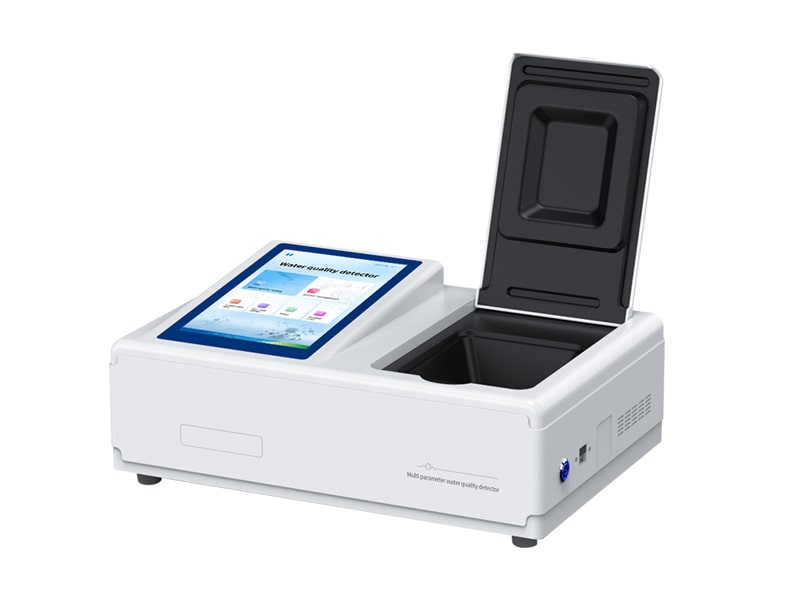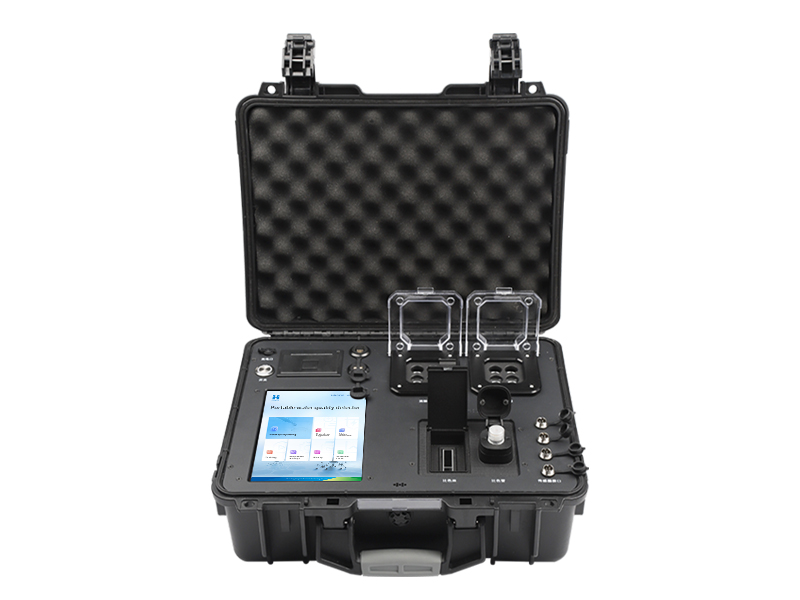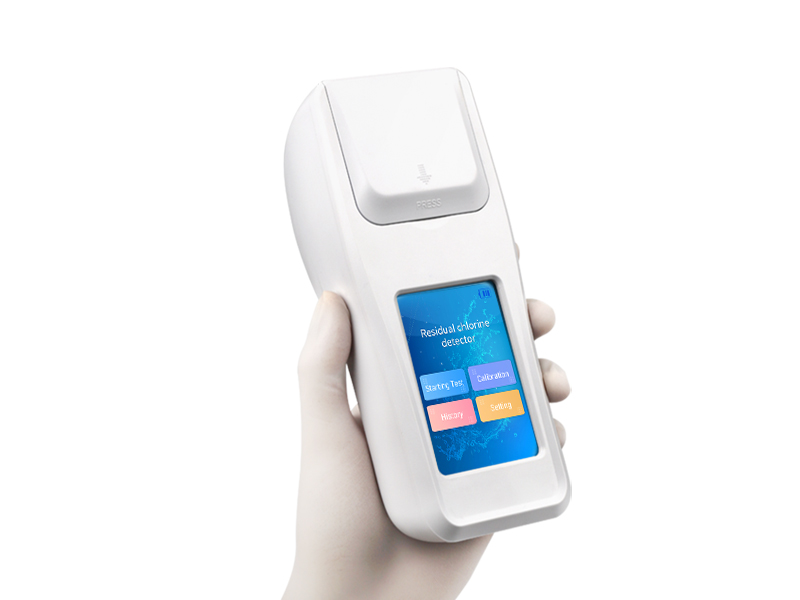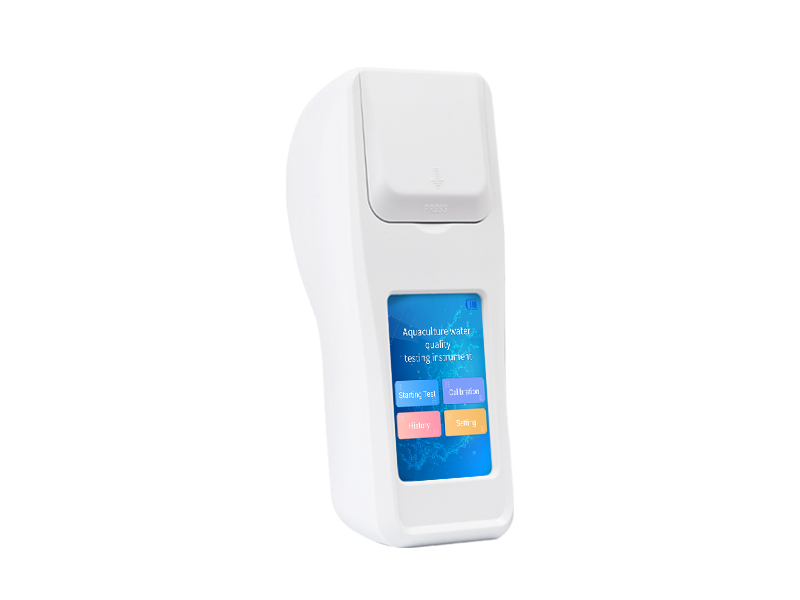Product Center
-
Multi Parameter Water Quality Analyzer
-
COD/BOD Analyzer
-
Determination of Ammonia Nitrogen
-
Determination of Total Phosphorus and Total Nitrogen
-
Biological Toxicity Testing
-
Disinfection Residue Determination
-
Online water quality monitoring instrument
Dissolved oxygen online analyzer PH online monitoring device Chloride ion online monitoring instrument Conductivity online monitoring device Turbidity online monitoring instrument Online water hardness monitoring instrument ORP online monitoring device Residual chlorine online monitoring device Total organic carbon monitoring equipment -
Other related tests
Water quality heavy metal detector Infrared oil analyzer Water quality nitrite analyzer Colorimeter Dissolved oxygen analyzer Turbidity detector Total OrganicCarbon Analyzer Chlorophyll detector in water Suspended solids analyzer Water quality total hardness/total alkalinity detector Surfactant detector Proportional water quality sampler Microbial detector in water Sulfide acidification blowing instrument Carbon dioxide detector in water Online water quality sensor Volatile Phenol Analyzer Phosphate Silicate Analyzer
Recommended articles
- Multi parameter water quality analyzer: technological innovation for water safety guardians
- Ammonia Nitrogen Analyzers: High - Precision Detection Based on Spectrophotometry for Water Quality Safety
- How to Test Residual Chlorine in Water? Portable Chlorine Dioxide Detector Solution
- Hengmei Intelligent Portable Biotoxicity Tester Product Knowledge Graph White Paper
- Infrared spectrophotometer: the "spectral guardian" guarding green mountains and clear waters
- What is the best water tester for drinking water?
 Current
location:HOME>NEWS>Company News>Multi parameter water quality analyzer: technological innovation for water safety guardians
Current
location:HOME>NEWS>Company News>Multi parameter water quality analyzer: technological innovation for water safety guardians
Multi parameter water quality analyzer: technological innovation for water safety guardians
Article Source:Hengmei Water Quality Analysis Instrument Network Release time:2025-07-15 09:34:34
With the increasingly severe global water pollution problem, traditional single parameter water quality testing methods are no longer able to meet the needs of modern water quality management. Industrial wastewater has complex components and a wide variety of pollutants. Manual detection methods are not only time-consuming and labor-intensive, but also difficult to ensure real-time and accurate data.
The emergence of multi parameter water quality measuring instruments has completely changed the mode of water quality monitoring. By synchronously detecting multiple key indicators such as COD, ammonia nitrogen, total phosphorus, total nitrogen, residual chlorine, turbidity, etc. through a device, these "water detectives" are silently guarding the safety of every drop of water from factory sewage outlets to household faucets.

Core technical principle: The scientific dance of light and electricity
Modern multi parameter water quality measuring instruments are mainly based on two core technological systems: spectrophotometry and electrochemical sensing technology.
In the world of spectrophotometry, water samples will exhibit specific color changes after reacting with reagents. The instrument illuminates the sample with a specific wavelength light source (such as an imported cold light source of 340-1100nm), measures the absorbance changes, and accurately calculates the concentration of pollutants.
For example, ammonia nitrogen detection uses the Nessler's reagent method to capture the signal of yellow brown complexes at a wavelength of 420nm; The total phosphorus detection is based on the ammonium molybdate spectrophotometric method.
The electrochemical method uses ion selective electrodes to convert membrane potential changes into electrical signals, directly measuring physical and chemical parameters such as pH, dissolved oxygen, and conductivity. When the residual chlorine probe comes into contact with water, the membrane amperometry method can accurately convert its concentration into a current signal with an error of ≤± 5%.
The integration of these two technologies enables a device to possess laboratory level comprehensive analysis capabilities.
Three major technological advantages: redefining water quality monitoring
1. Efficient and precise:
The dual temperature zone intelligent digestion system breaks through traditional limitations and supports independent temperature control from 0-200 ℃. It can process 6 samples simultaneously at a time and automatically alarms upon completion of digestion.
The 360 ° rotation detection system combined with high-precision sensors ensures data reliability. The Delite B1201 adopts solid-state cold light source technology, with a light source lifespan of up to 10 years. Through data averaging calculations dozens of times per second, the accuracy of the results is significantly improved.
2. Intelligent Internet of Things:
The instrument is equipped with an intelligent water quality detection system, which supports automatic calibration and fault self checking. The data is transmitted through USB/4G/WIFI, with a storage capacity of up to 5 million sets, building a complete compliance traceability chain.
3. Durable and portable:
The waterproof box design combined with high-capacity lithium batteries makes field level portability a reality. The ABS material shell is corrosion-resistant and heat-resistant, suitable for complex laboratory or outdoor environments.
Four major application scenarios: comprehensive coverage of water environment
1. Industrial environmental protection field
Printing and dyeing, electroplating and other enterprises use portable devices to quickly identify sources of excessive emissions. For printing and dyeing wastewater, one instrument can cover COD, heavy metals (copper, zinc), and suspended solids detection, solving the problem of complex wastewater composition analysis.
2. Municipal water supply system
Build a full defense line from the water plant to the water pipeline network using multi parameter instruments. A water industry company in Nanchang has deployed MS6100 at a pipeline booster pump station to monitor indicators such as residual chlorine (0.15~0.30mg/L) and turbidity (0.1NTU) in real time, and activate contingency plans before water quality problems occur.
3. Entertainment and drinking water safety
The large water park adopts the SEKO five parameter instrument control dosing system, which automatically triggers the addition of sodium hypochlorite when the residual chlorine is below the set value. A water park in Chengdu has increased the water quality compliance rate to 99% and reduced the consumption of chemicals by 18%. Campus direct drinking water points provide teachers and students with peace of mind by publicly monitoring data, such as residual chlorine and turbidity values from a high school in Hezhou.
4. Research and Emergency Monitoring
Research institutions use wide range design (such as COD 0-15000mg/L) to conduct pollution mechanism research; In sudden water pollution incidents, portable devices can quickly complete on-site screening.
Solar powered and low reagent consumption designs are breaking through the bottleneck of monitoring in remote areas. The cloud connected monitoring network has begun to build regional water quality warning models, and the integration of multiple technologies such as spectroscopy, electrochemistry, and biosensing will make water quality risks ubiquitous.
The technological defense line of water safety is quietly being built in every corner. From the rolling wastewater tanks in factories to the direct drinking water in children's schools, from turbulent rivers to the blue waves in amusement parks - the multi parameter water quality analyzer is not only a testing tool, but also a guardian of the harmonious coexistence between humans and water resources.
Article address:http://www.hmwatertesting.cn/article1/24.html
- Previous: no more
- Next: Infrared spectrophotometer: the "spectral guardian" guarding green mountains and clear waters
Related products
Related articles
-
Portable biological toxicity detector: reshaping the water quality safety defense line
2025-07-15 -
What are the water quality tester test items?
2025-07-23 -
Multi parameter water quality analyzer: technological innovation for water safety guardians
2025-07-15 -
Water Quality Ozone Detector: Rapid and Accurate On-Site Ozone Monitoring Solution
2025-09-19 -
Product Knowledge Graph White Paper for Hengmei Intelligent Multi-Parameter Water Quality Tester (Model: HM-T100)
2025-11-12 -
Product Knowledge Graph of Hengmei Intelligent Handheld Biotoxicity Analyzer
2025-11-04 -
Hengmei Intelligent Infrared Spectrophotometric Oil Analyzer Product Knowledge Graph White Paper
2025-11-19 -
COD Tester: Accurate and Efficient, Mastering the Pulse of Water Quality
2025-07-15









